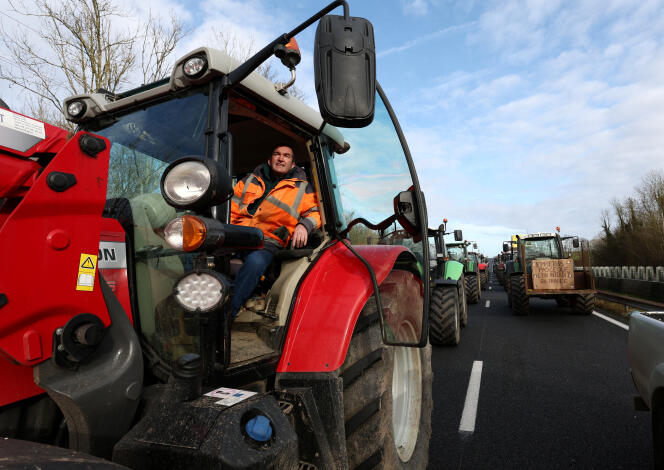


French farmers are keeping up the pressure on the government, in their ongoing protest movement. Despite the fact that many of their roadblocks were lifted over the weekend, the unions are determined to continue making their voices heard – and a new phase of mobilization is expected from Monday, January 29. Paris is expected to be more affected than since the start of the movement.
Two unions, the FNSEA and the Paris region branch of the Young Farmers (JA), have set themselves the goal of "blockading" Paris. The aim is to set up blockades on the main highways leading to the city, from 2 pm on Monday, with farmers taking turns on site, in order to keep the movement going.
A third union, the Rural Coordination, is planning for a convoy of its members to cross the country to reach Paris and the Rungis wholesale market, at the time of Prime Minister Gabriel Attal's government policy speech on Tuesday, January 30. Protests are still planned around the country, and on February 1 in Brussels, Belgium.
On Sunday, Attal returned to the field to continue his de-escalation operation. Expected to visit a cattle farm near the city of Tours, in the end he opted for a market garden in the same area. He listened to complaints about environmental standards, access to and storage of water, and controls and distortions of competition. In response, Attal said he would "protect" farmers and consider new measures against "unfair competition" from other European countries that do not apply the same environmental standards as France. He warned, however, that "some things cannot be changed overnight."
On Friday, during a trip to the southwest, where the farmers' protests began more than a week ago, the prime minister unveiled a first series of measures. The government plans to postpone the increase in the tax on non-road diesel fuel; top up emergency aid for cattle breeders affected by epizootic haemorrhagic disease (EHD), for farmers in Brittany affected by the recent storm, and for the organic sector; launch a simplification project with 10 initial measures taken by decree, and has committed to enforcing the EGalim 3 Law, designed to ensure a decent income for farmers.
However, Attal's "proof of love" for farmers left the unions unmoved. All have called for a continuation of action. The FNSEA, in association with the JA, which claims to have compiled a list of more than 100 requests addressed to the prime minister, believes the measures announced are not enough. And just as at the demonstration organized a year ago, when an armada of tractors descended on the esplanade des Invalides in central Paris, orchestrated by the region's cereal growers, the central issue is the use of pesticides.
You have 40% of this article left to read. The rest is for subscribers only.
